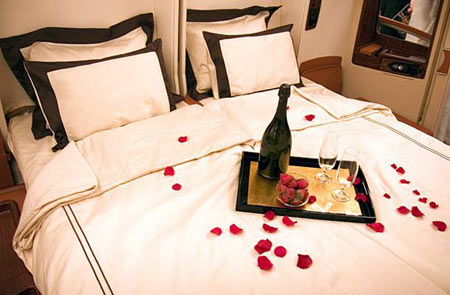For many who own a slightly higher tiered credit or charge card in the city, they get to enter the Plaza Premium lounges at the Hong Kong International Airport while waiting for boarding. Obviously it’s no The Wing, The Pier, The Cabin and The Arrival lounges operated by Cathay Pacific for its loyal customers, but over the years I have seen it revamping into a much improved product since inception.
The lounge is heavily visited since it began to serve other airlines when CX either closes their doors or is simply too expensive for them. I don’t know whether it’s mob mentality, but patrons here are generally not paying hefty buffet charges. Why are they devouring their food? Sure there must be starving passengers somewhere who have been stranded for hours, but there is simply no point jamming in all those stale salads and sandwiches. And what’s the deal with stuffing all those sodas and bottled waters in their carry-ons?
This reminds me, air travel is still considered a chore these days. Surely it has been glamorized by fancy new seats and upper class cabins, but for the majority, cramming into those 3-4-3 economy seats for 6 to 14 hours is a nightmare. No elbow room, no leg room, hardly any service, crying babies, rude passengers, smelly neighbors, long lines at the toilets, malfunctioned entertainment units, hardly covers all that to dread for. Not to mention the multiplied misery if it is a business trip.
That explains why patrons at the airport lounges behave like inmates ready for detention. To add-on, airports are notorious in charging exorbitant prices on food that is far below mediocre in city’s standards, and travelers just have to make do with anything free.
So this is all about supply and demand. Since air travel is almost the only mode of transportation internationally (at least for most of Asia), the airlines can pretty much dictate what service levels they will provide or what food they serve. The airports can make profits from their captive customers, and anything related to air travel including airport limousines, express railways and taxis are all entitled to charge much higher fees.
With that huge demand over limited or even monopolized supply, anyone who believe negotiations over price discounts, bonus offers or upgrades in the travel industry can produce material results, are seriously mistaken. It’s still better than not doing anything, if the purchasing volume is sizable. However, the results are not going to help you make any significant numbers.
That’s why I prefer to leave travel procurement to my capable teammates, while I focus on reviewing the travel policy with our CEO. Don’t expect miracles to happen there either, because as far as business travel welfare is concerned, I will never see the CEO picking the lounge where I am at today, over the champagne and caviar that he gets to enjoy on board.


